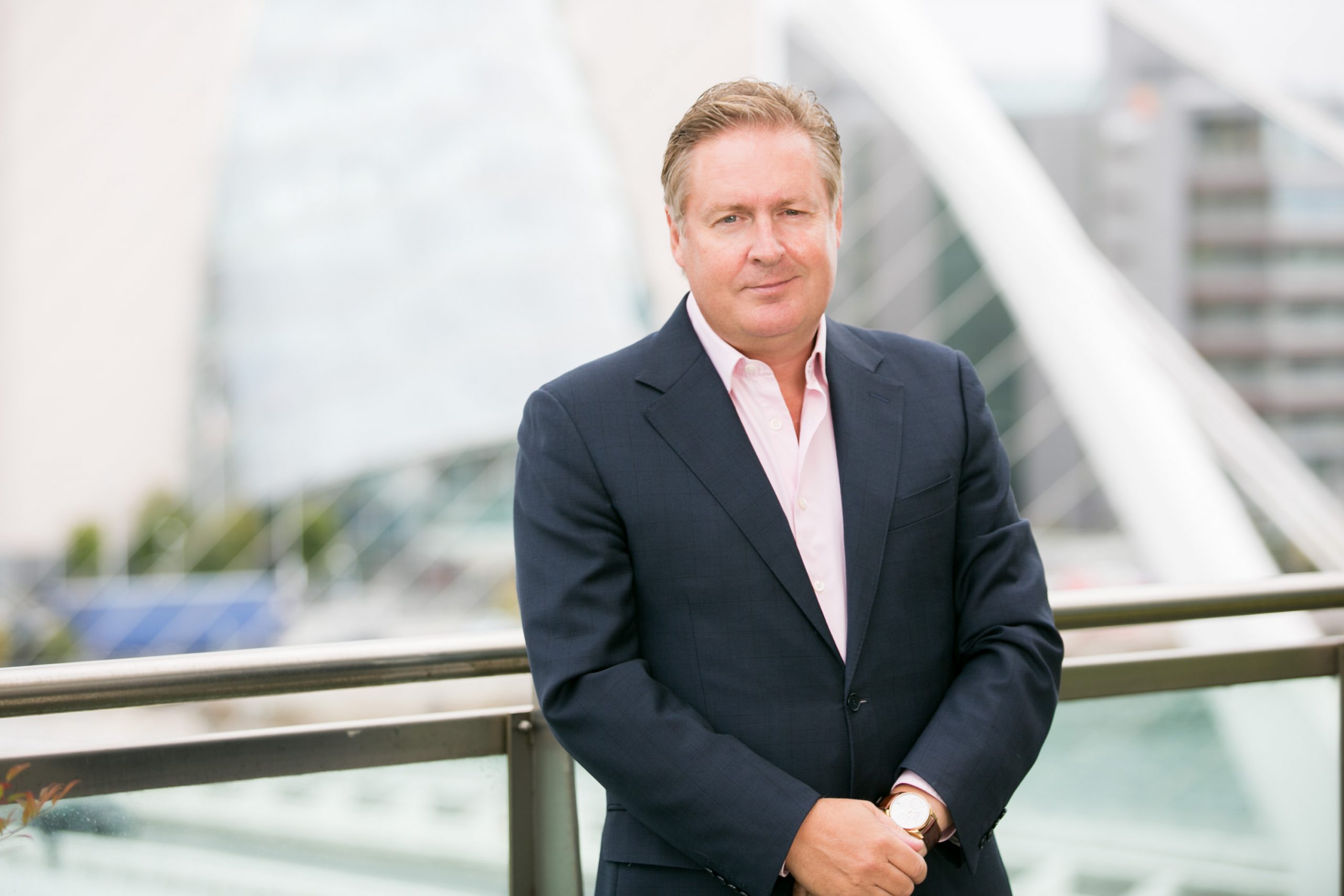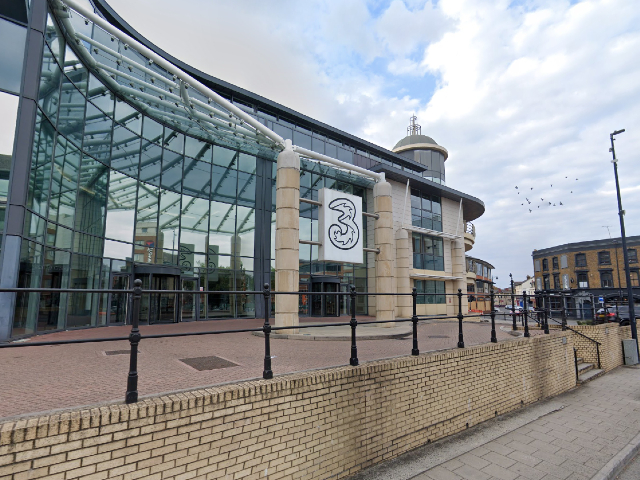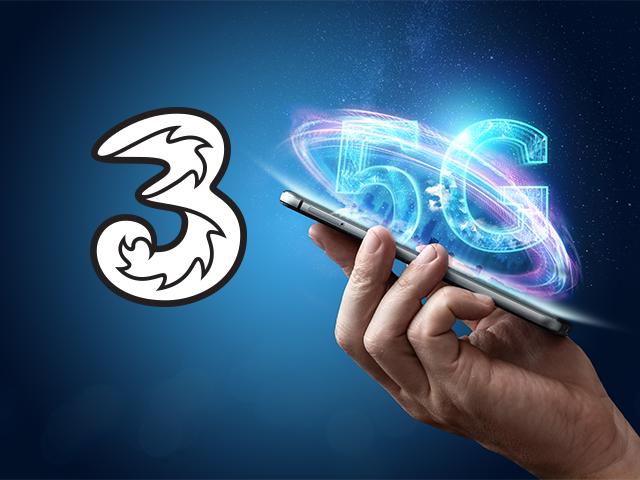Physical Address
304 North Cardinal St.
Dorchester Center, MA 02124
Physical Address
304 North Cardinal St.
Dorchester Center, MA 02124

It’s never easy to take the reins at an MNO, but Three’s Robert Finnegan admits he could have arrived at a better time.
“On my first day in the job, lockdown had been announced, and the contact centres and our stores were closed, so it was a great day to join,” says the Irishman drily.
Not only that, but his appointment as replacement for Dave Dyson in March was also part of a restructure that saw other key departures – namely, marketing chief Shadi Halliwell and chief commercial officer Richard Woodward. These departures came in the wake of much-admired network strategy head Phil Sheppard stepping down a month earlier.
Finnegan has also overseen the appointments of (deep breath) a new chief network officer, chief information officer, managing director for business, and director of RAN, as well as bringing over a new chief marketing officer and chief commercial officer from the Irish operation.
And on top of becoming Three UK’s CEO, Finnegan retains the position he has held as head of Three Ireland since 2005. There, he has overseen the operator’s market share rise from one to 36 per cent, as well as hitting 40 per cent in the business segment.
As if all this wasn’t enough, the year has seen a wholesale change in working habits, with head-office employees working remotely and retail staff retrained to handle increased online and telesales traffic.
When we talk (remotely, of course), Finnegan has dialled in from his office at Three’s Maidenhead HQ. The viability of office work is on everyone’s mind, but arguably more so on Finnegan’s, as the network prepares to move out of the building it has called home since launching 17 years ago.
Staff are balancing remote working and time in Three’s Reading office while a new head office in the Thames Valley is sought. “It’s timely,” Finnegan says of the move. “It’s opportune with remote working for us to look at our office situation in terms of the square footage we require, and ensure quality of life for our staff in terms of being able to work from home on a more permanent basis.

“Then we can have social areas for people getting together for projects and activities – that’s really what we see the head office being used for as we move forward.”
Not that Finnegan thinks an office is the most essential part of operating successfully. In his view, Three has successfully navigated the most difficult part of the pandemic for a business – that is, working out how to work through it while keeping as many of its staff as safe as possible.
“I feel it’s worked very well,” he says. “Demands on our business have actually grown during this period, but we’ve managed the business remotely and continued to roll out successfully, and that’s a testament to the ability of our IT systems and network to enable that.”
But it hasn’t all been a smooth adjustment. According to results from Three’s Hong Kong conglomerate parent CK Hutchison, the operator’s active customer base dropped from 10.2 million to 9.5 million in the first half of this year, while revenue dipped four per cent to £1.116 billion.
Finnegan attributes this to a decline in prepaid customers, while pointing to recent statistics that indicate a recovery: “In the third quarter of this year, our base grew by 214,000 customers, compared to 59,000 last year with no Covid – which is a testament to the focus on growth, customers and connectivity which we’re instilling into the organisation.”
While it’s been an especially hectic time for Finnegan to bring together the British and Irish businesses, he says the opportunity is there to transfer key learnings between the two.
One example he points to is the success of Three Store Now, which provides live video chats for customers with in-store advisors, giving them the closest facsimile of a physical retail experience without being there. After proving invaluable in the UK, this is being rolled out to Irish staff.
In the other direction, the UK B2B team – which currently has a negligible market share – can take a leaf out of Three Ireland’s book when it comes to aggressive gains.
The division has already made moves in this direction, building on the launch of its Three Means Business initiative last year with
the appointment of former EE and BT SME director Mike Tomlinson as managing director for business.
And then there are lessons to learn from previous consolidation. Three Ireland owes a lot of its more recent success to its 2014 acquisition of Telefónica’s O2 Ireland, a move that Finnegan believes has had no negative impact on competition or pricing for the country’s mobile users.
However, Three UK’s own consolidation efforts ran into a roadblock after the European Commission blocked its attempt at a £10 billion merger with O2 in 2016, on the grounds that it would be bad for competition.
This ruling has been put back under the spotlight after the General Court of the European Union annulled the Commission’s ruling earlier this year, at the same time as O2 and Virgin Media are gearing up for their own £31 billion tie-up.
“Dysfunctional” is a word that Finnegan has repeatedly used to describe the current UK telecoms market in the months since his appointment, and it escapes his lips a few times more during our conversation.
“I believe the market is dysfunctional from what I see, and it reminds me of the Irish market and a number of others across Europe years ago before consolidation took place,” he says.
“I think there are too many players; I don’t think it’s good for competition or the customer because investment into the industry is not as much as it would be in a more functional market. We’ve seen the evidence of that in Austria, Italy and Ireland where we’ve consolidated.”
In Finnegan’s eyes, the current situation in the UK isn’t encouraging investment, with the government’s order to strip out Huawei equipment by 2027 a key aspect – especially at a time when the networks are upping their 5G rollouts.
Three isn’t as impacted by the need to ditch Huawei as EE and Vodafone, with about 15 per cent of its total network affected according to Finnegan, and an agreement with Ericsson in place.
However, he says, encouraging investment makes all the networks more competitive. “At a time when the industry needs a huge amount of investment, there are greater disinvestment draws than pro-investment draws,” he says. “The need to swap out Huawei equipment is not going to add to the quality of the infrastructure or the customer experience; it’s just replacing kit, so it’s dead money.”
The need for investment is particularly important now that the iPhone 12 – and thus 5G, if Apple’s marketing is to be believed – is here. Finnegan says sales of the new iPhone are almost double those at this time last year, and the Cupertino giant’s ad blitz has impressed upon consumers the importance of upgrading.
Three has now passed the 100 location milestone for 5G, with its coverage spanning 800 sites across 154 locations. With an auction of fresh 5G spectrum looming early next year, Finnegan earlier advocated for a system whereby Ofcom and the operators agree on a fair share of spectrum that is then sold without bidding.
He believes this would still raise around £1.1 billion for the regulator, while giving the operators more funds left over to invest by resulting in lower prices for spectrum.
However, Ofcom has forged on with the auction process and now that the rules have been laid out, Finnegan won’t speak further on the matter.
An investment-friendly environment would benefit the networks at a time when Covid-19 has put a strain on finances in a sector viewed as key to recovery, says Finnegan.
“I think in a regulatory and government environment, telecoms is now seen as critical infrastructure more than ever, because it is enabling people to work from home and stay connected, and the economy to keep going to a degree it would not if we did not have the infrastructure,” he asserts.

Finnegan is dismayed that the government did not deem the networks’ physical retail outlets to be key businesses that could remain open during the second national lockdown, especially as they proved themselves to be among the most conscientious when it came to hygiene and social distancing during the summer.
Even with numerous vaccines on the horizon and tentative forecasts of a return to normality by next winter, the risk for repeated store closures remains – which Finnegan believes unjustly harms some consumers, for all the advances made in remote customer service.
“There should have been an exemption for mobile stores, and the four operators have written to DCMS [the Department for Digital, Culture, Media & Sport] to get that,” he says.
“Stores provide services for a number of customers who would prefer to go in rather than ring the contact centre; we estimate that 60 per cent of people go in-store for service.”
Finnegan adds that the situation is made more egregious by numerous lockdowns across France, Germany, Italy, Ireland and Austria not preventing phone shops remaining open for urgent customer needs.
Keeping them shut has a twofold effect, he says, putting added pressure on already busy contact centres and potentially preventing people whose very issue may be an inability to communicate from seeking in-store help.
One area of regulation where Finnegan is happy to see a change is in Ofcom’s recent ruling that bans the sale of locked handsets from December 2021 (see feature on page 16) – with Three having started to sell unlocked handsets in 2014.
“We’ve been lobbying on that for a number of years and we’re delighted to see it come into effect,” he says. “You’ll see a more level playing field for consumers. It gives people the opportunity to take advantage of good offers, and would put us in good stead as we offer better value than our competitors.”
When Mobile News spoke to Dave Dyson at Three’s fixed wireless 5G launch in August last year, he said that doubling profits and customer base within five years would be a reasonable aim.
Finnegan won’t confirm whether he’s sticking to that target; in the intervening 15 months, there’s been the small matter of a pandemic and a new-look management to alter perspectives.
But with a way out of the pandemic in sight, the increasing ubiquity of 5G both in a mobile and fixed wireless setting, and a push into the business sector on the cards, there will be plenty for him and his team to get their teeth into.